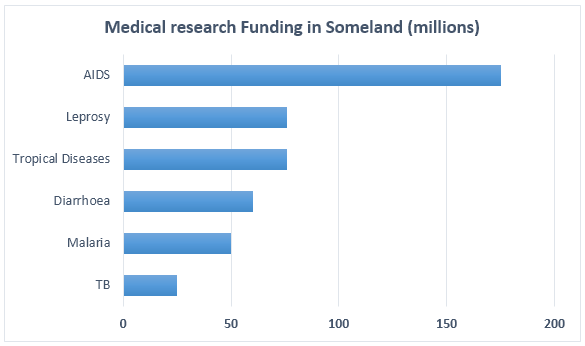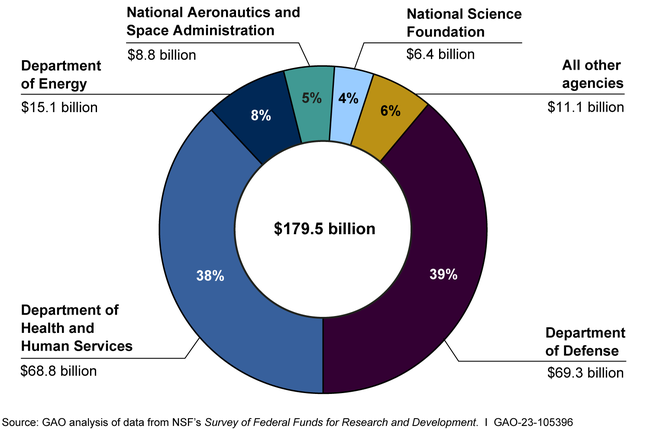Funding impact on medical research is a critical issue that affects the safety and outcomes of clinical trials across the nation. When federal funds, such as NIH research grants, are cut or frozen, the repercussions ripple through all levels of medical research, primarily where patient safety in research is concerned. The recent halt in funding at esteemed institutions like Harvard has disrupted not just the studies themselves but also the oversight systems, such as IRB oversight, that ensure ethical standards are upheld. As clinical research deeply influences the development of new treatments and interventions, inadequate funding can lead to stalled projects, diminished participant protection, and growing public skepticism toward research ethics. Ultimately, the availability of substantial medical research funding plays a pivotal role in supporting the infrastructure necessary for conducting safe and ethical clinical trials.
The role that financial support plays in advancing scientific inquiry into human health is often overlooked but profoundly significant. Funding for clinical studies not only facilitates the design and implementation of research but also underpins the ethical frameworks such as clinical research ethics and regulatory bodies that safeguard participants. Cuts in this critical funding can lead to a lack of adequate resources, which in turn jeopardizes patient safety in research and can compromise the overall integrity of the investigative process. Similarly, without the necessary financial backing, initiatives designed to streamline research oversight, like the SMART IRB system, may falter, thereby affecting both the research community and those who rely on its advancements. In this way, the impact of funding extends beyond mere dollars and cents; it fundamentally shapes the landscape of human health research and public trust.
The Critical Role of Funding in Medical Research
Funding plays an essential role in the landscape of medical research, providing the resources required for innovative studies that inform clinical practices and advance patient safety. NIH research grants, for example, enable institutions to recruit qualified personnel, procure state-of-the-art equipment, and carry out essential experiments that lead to breakthroughs in healthcare. However, when funding is halted or reduced, as recently seen with the Trump administration’s freeze on over $2 billion in federal grants to institutions like Harvard, the ramifications ripple through the entire research ecosystem. Such drastic cuts not only impede current studies but threaten to inhibit future research initiatives, ultimately jeopardizing patient outcomes.
Moreover, the halt in funding disrupts crucial oversight mechanisms, such as those provided by Institutional Review Boards (IRBs), which are fundamental to safeguarding the rights and health of research participants. These boards are tasked with evaluating the ethical implications of studies, ensuring that researchers adhere to established guidelines while promoting patient safety in research. The absence of adequate funding undermines these vital review processes and diminishes the ability to conduct robust and ethically sound research, compromising the integrity of scientific exploration.
The Impact of Funding Cuts on Patient Safety
Funding cuts in the realm of medical research directly impact patient safety by stalling critical studies that have the potential to uncover new treatments or understand existing conditions better. With financial resources tight, many research teams must halt ongoing trials or delay the initiation of new ones, fostering an environment where patient safety is put on the back burner. The cancellation of grants often leads to limited resources for monitoring adverse events and ensuring that ethical standards are met throughout study participation.
Furthermore, the erosion of trust in research due to funding disruptions can have a long-lasting effect on participants who volunteer for studies. When individuals perceive that research is stymied or inadequately overseen due to budget constraints, they may become less willing to participate in future studies. This hesitance can ultimately lead to fewer participants in critical trials, further impeding advancements in medical science that are vital for improving patient outcomes and safeguarding public health.
The Role of IRBs in Ensuring Ethical Research Practices
Institutional Review Boards (IRBs) play a pivotal role in maintaining ethical research practices and protecting human participants. They evaluate research proposals to ensure they meet the ethical standards necessary for safeguarding participant welfare and driving scientific inquiry. The oversight provided by IRBs is particularly relevant in the era of collaborative, multisite research efforts, which following the NIH policy, now require a single IRB (sIRB) review. This streamlined approach promotes more ethical and efficient research practices while prioritizing patient safety and informed consent.
Without adequate funding and support for these boards, the infrastructure that upholds ethical standards in medical research could falter. Many IRBs rely on grant funding to support their operations, including training programs for investigators and monitoring compliance with regulations. When funding is interrupted, IRBs may struggle to fulfill their commitments, potentially leading to lapses in ethical oversight that could adversely affect research participants and dilute public trust in research institutions.
Consequences of Research Funding Cuts on Innovation
Research funding cuts can severely stifle innovation within the medical field by restricting resources needed to pursue groundbreaking studies. For example, collaborative projects that require input and cooperation from multiple institutions may face delays or even cancellation due to budget cuts. These interruptions not only cause an immediate loss of progress but also hinder the long-term potential for developing new therapies or interventions that could benefit patients significantly. Each setback in funding can represent a lost opportunity for advancements that drive the medical field forward.
The innovative capacity of medical research relies heavily on sustained funding; thus, a withdrawal can create a ripple effect of stagnation. In the current climate, researchers who are committed to exploring novel treatments and improving patient care often find themselves sidelined due to insufficient financial backing. When hospitals and universities no longer collaborate effectively due to these challenges, the overall progress in clinical research and advancements in patient safety takes a significant hit.
Clinical Research Ethics Amid Funding Challenges
Clinical research is governed by ethical principles that prioritize participant safety and informed consent. However, when funding comes into question, ethical considerations can become overshadowed by the financial realities facing researchers. In instances of funding cuts, not only are the resources available for patient safety in research diminished, but researchers may also be pressured to compromise ethical standards in an attempt to maintain their studies. This presents a dangerous precedent where the welfare of participants could become secondary to the pursuit of results and outcomes.
Organizations that allocate research funds, such as federal grants from the NIH, are crucial for enforcing these ethical standards and ensuring that researchers maintain integrity in their pursuits. As demonstrated in the past with infamous studies that violated ethical norms, it becomes vital that sustained funding is provided to reinforce the systems in place that protect participants. Funding cuts undermine the mechanisms designed to uphold clinical research ethics and, in turn, threaten the very foundation of trust necessary for successful participant engagement in future studies.
Advancing Patient Safety Through Consistent Funding
Patient safety remains at the forefront of biomedical research, but it can only be assured through consistent and adequate funding. The implications of insufficient funding are vast; they manifest in reduced administrative support for IRBs, less aggressive monitoring of ongoing studies, and ultimately, a compromised ability to respond to adverse events. This creates an environment where patient safety might be jeopardized, raising ethical concerns about how research is conducted and who it serves.
Moreover, consistent funding allows for continuous improvement and training for clinical researchers and IRB members, ensuring that they are equipped with the latest knowledge on regulatory compliance and ethical oversight. As healthcare advances and new technologies emerge, ongoing education supported by funding is crucial in fostering a culture of safety and transparency in research. By prioritizing funding for safety protocols and ethical standards, the research community can safeguard the interests of participants and enhance the integrity of medical research.
Strategies for Securing Research Funding
In light of precarious funding landscapes, it becomes essential for researchers and institutions to adopt strategic approaches to secure funding for essential medical research. Developing strong proposals that clearly outline the significance of the research, alongside potential impacts on patient safety and public health, can attract the attention of grant committees. Collaborating with experienced grant writers and forming partnerships with organizations committed to advancing medical research can also increase the chances of securing vital funding.
Additionally, engaging with community stakeholders to foster public support can be instrumental in advocating for more research funding. By demonstrating the tangible benefits of research initiatives, universities and research institutions can appeal to a wider audience, emphasizing how well-funded research can directly impact patient safety and healthcare quality. Through concerted efforts, the research community can help to ensure that funding becomes less fragmented and more robustly directed toward the essential goals of advancing health and safety.
Navigating the Future of Medical Research Funding
The future of medical research funding presents both challenges and opportunities for researchers, institutions, and the public. As funding landscapes shift, it’s crucial for the medical research community to remain adaptable and proactive in seeking out diverse funding streams. This can include a mix of public, private, and philanthropic sources, which can help build a sustainable funding infrastructure that supports ongoing research efforts and patient safety initiatives.
Moreover, the advocacy for improved policies regarding research funding can help ensure that crucial areas of research are prioritized. Engaging in dialogue with policymakers and educating them about the significant impacts of funding decisions on patient outcomes can encourage more supportive funding environments. The collaboration between researchers, institutions, and community stakeholders will be key to navigating the complexities of funding, maximizing the impact on both medical research advancements and the safety of research participants.
The Importance of Long-Term Investment in Research
Long-term investment in medical research is essential not only for sustainable progress but also for maintaining a steadfast commitment to patient safety and ethical oversight. When funding is consistent and reliable, research institutions can build robust frameworks that prioritize participant welfare, streamline IRB processes, and encourage innovative research practices. A long-term perspective enables researchers to approach studies more strategically, integrating ethical considerations right from the onset.
Additionally, long-term funding stability fosters collaboration among institutions, leading to more comprehensive research initiatives that address complex health issues from various angles. It allows for the pooling of resources and expertise, which is particularly beneficial in large-scale studies aimed at improving patient outcomes. By ensuring that funding mechanisms reflect the need for continuity over time, the entirety of the medical research community can contribute to a healthier future for all patients.
Frequently Asked Questions
What is the impact of funding cuts on medical research ethics and patient safety?
Funding cuts significantly undermine the ethics of medical research and patient safety. When federal grants, such as NIH research grants, are halted, the oversight by Institutional Review Boards (IRBs) is compromised, which can lead to increased risks for patients participating in studies. Ensuring compliance with clinical research ethics necessitates adequate funding, as IRBs play a crucial role in monitoring research proposals and safeguarding participants’ rights and welfare.
How do NIH research grants enhance patient safety in medical research?
NIH research grants enhance patient safety by providing the necessary resources to support IRB oversight, which is essential for ethical compliance in studies involving human participants. These grants fund the review process to ensure that clinical research adheres to safety regulations and ethical guidelines, thereby reducing potential risks associated with medical research.
What role do IRBs play in maintaining patient safety during medical research funded by the NIH?
Institutional Review Boards (IRBs) are pivotal in maintaining patient safety during NIH-funded medical research. They review and approve study protocols to ensure ethical standards are met, assess risks, and monitor ongoing studies. This oversight is crucial for protecting participants’ rights and welfare, preventing harm, and ensuring informed consent.
In what ways can disruptions in funding impact clinical research ethics?
Disruptions in funding can lead to a breakdown in clinical research ethics by halting IRB review processes and delaying necessary studies. This can compromise participant safety, hinder ethical oversight, and foster mistrust among communities towards research institutions. Without adequate funding, the systems in place to protect research participants are weakened, increasing the likelihood of unethical practices.
What historical examples highlight the necessity of funding for patient safety in medical research?
Historical events, such as the Tuskegee syphilis study and unethical experimentation during WWII, emphasize the necessity of funding for ensuring patient safety in medical research. These incidents led to the establishment of ethical frameworks and IRB oversight, which rely heavily on funding through mechanisms like NIH research grants to maintain the integrity and safety of medical studies.
How do funding impacts relate to the responsibilities of IRBs?
Funding impacts are closely tied to the responsibilities of IRBs, as adequate financial resources are essential for IRBs to function effectively. They require funding to review research proposals, oversee ongoing studies, and implement necessary training programs to uphold ethical standards in medical research. Cuts in funding can hinder these operations, potentially compromising patient safety.
| Key Point | Details |
|---|---|
| Funding Freeze | The Trump administration’s freeze of over $2 billion in federal research grants to Harvard disrupted various medical research efforts. |
| Impact on SMART IRB | A stop-work order was placed on SMART IRB, which facilitates oversight of multi-site medical research, affecting patient safety and rights. |
| Role of IRBs | Institutional Review Boards (IRBs) ensure compliance with laws, policies, and the protection of human research participants. |
| Historical Precedents | Past abuses in medical research highlight the importance of IRB oversight and inform current ethical standards. |
| Research Funding Impact | Cuts to funding will delay studies, harm participants, and increase public skepticism towards medical research. |
| Continued Support | Despite the funding cuts, support from Harvard Medical School allows continued collaboration essential for patient safety. |
Summary
The funding impact on medical research is profound, as cuts disrupt essential oversight mechanisms meant to protect patient safety. These funding cuts not only hinder the progression of research initiatives aimed at improving medical interventions but also risk the well-being of individuals who participate in clinical studies. With crucial oversight by IRBs compromised, the potential for harm escalates, affecting both trust in the research community and the health outcomes of research participants. The ongoing support from institutions like Harvard remains vital to mitigate these impacts and uphold the integrity of medical research.




